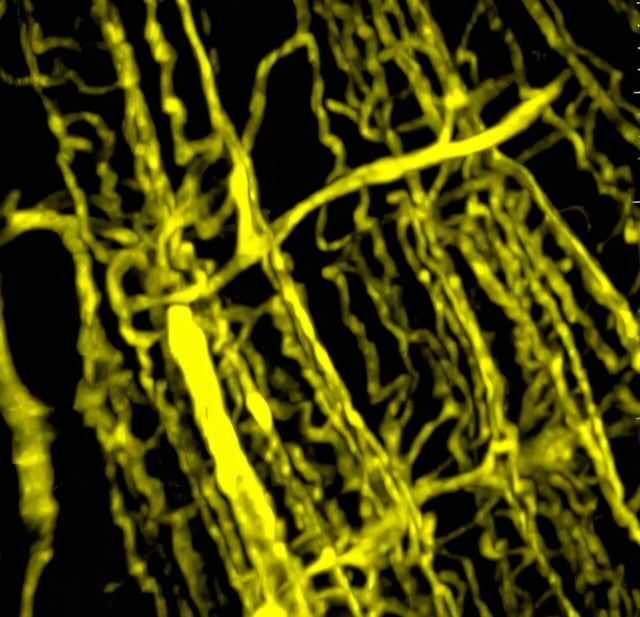Overview
- Up to 80% of cancer patients develop cachexia, a syndrome marked by severe muscle loss, profound fatigue and reduced treatment resilience.
- Researchers found that tumor-derived activin A suppresses PGC1α in muscle endothelial cells, triggering blood vessel dysfunction and muscle atrophy.
- Restoring PGC1α in endothelial cells reestablished vascular networks and reversed muscle wasting in pancreatic cancer models.
- Comparable blood vessel impairment and muscle loss were observed in colon, lung and melanoma cancer models as well as patient tissue samples.
- Investigators are now developing pharmacological agents and gene therapies targeting the activin A–PGC1α axis to translate these findings into clinical treatments.
